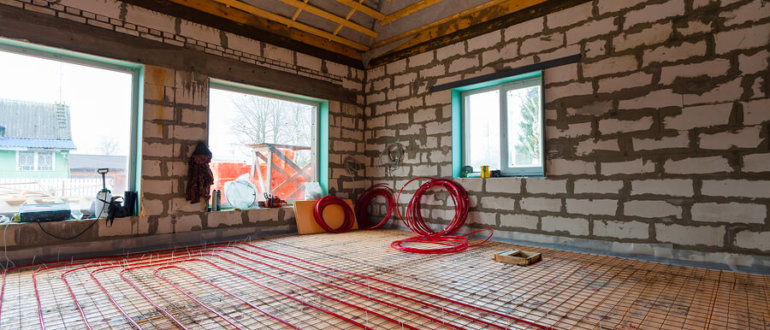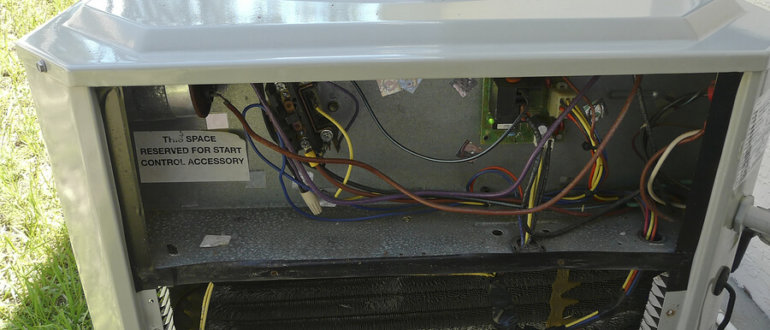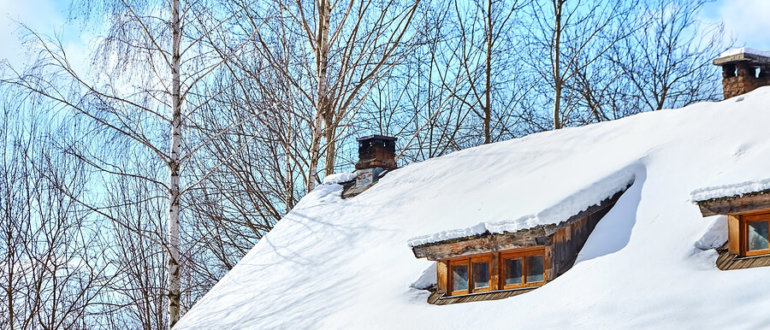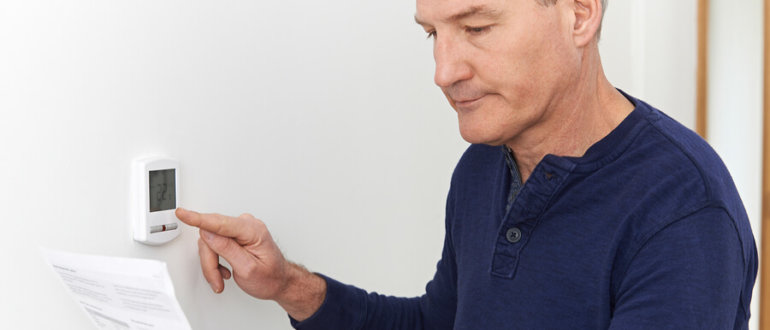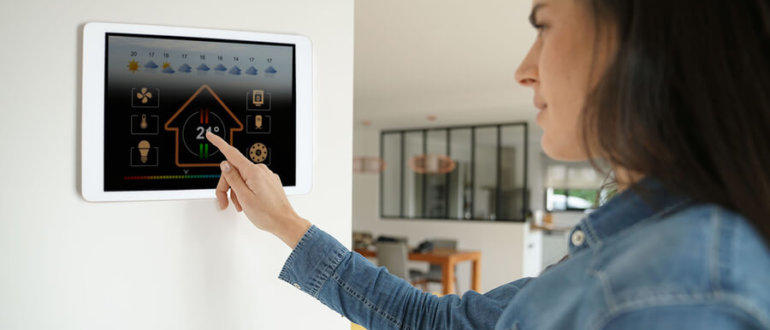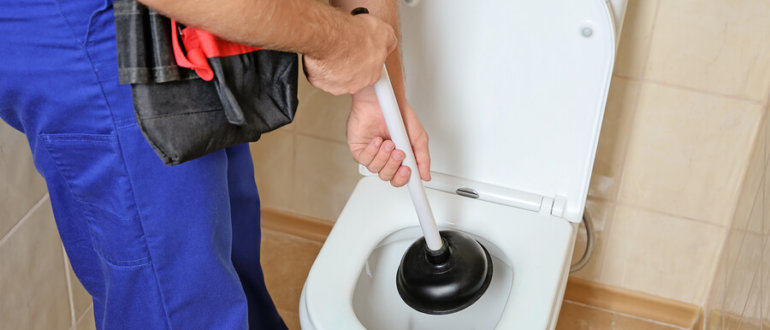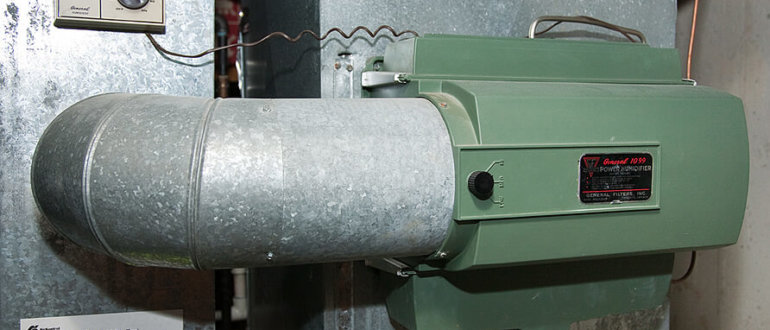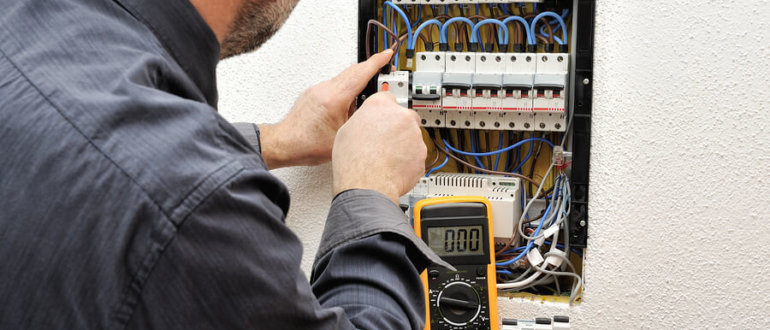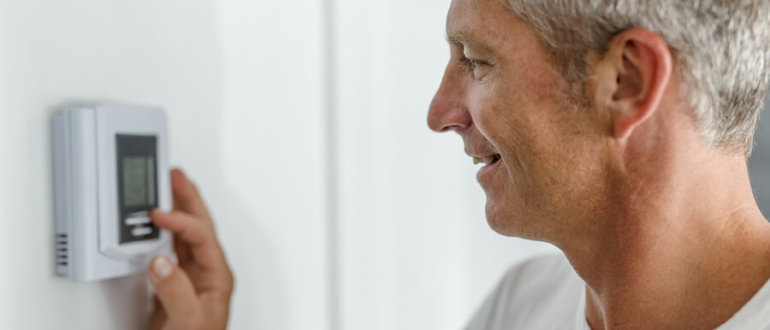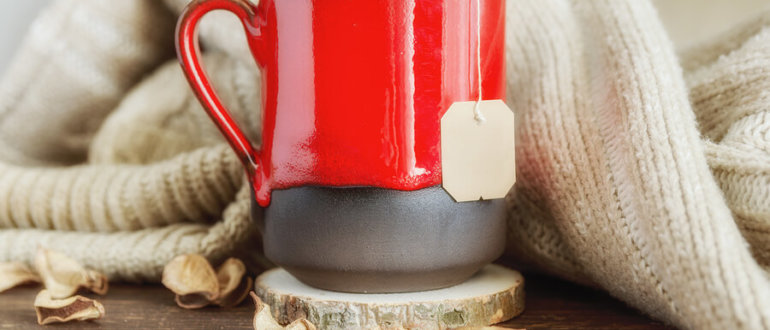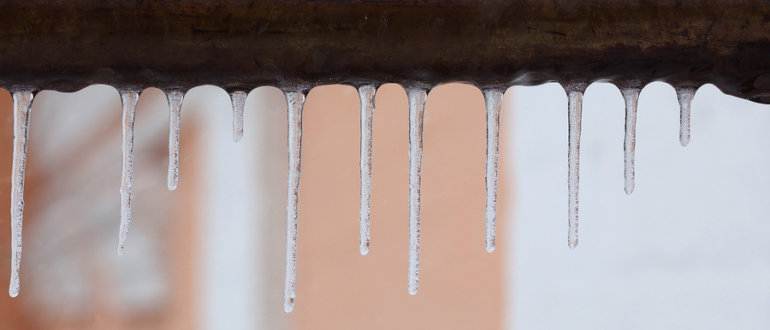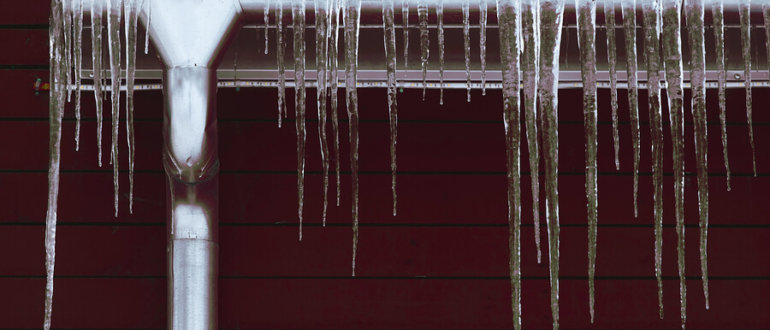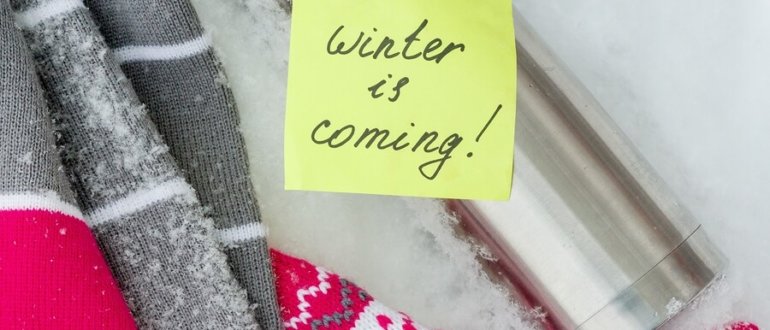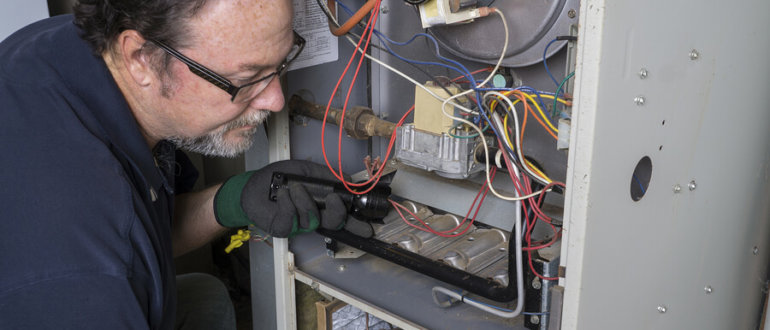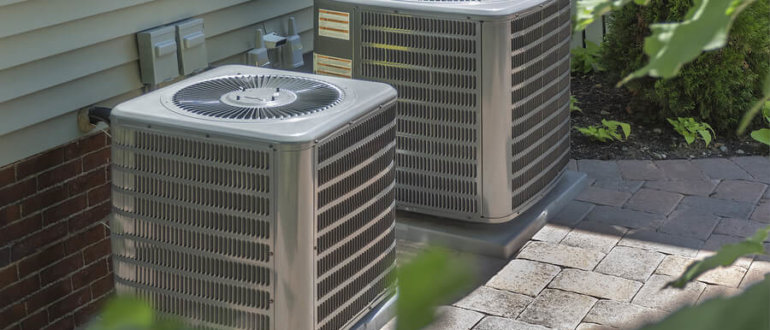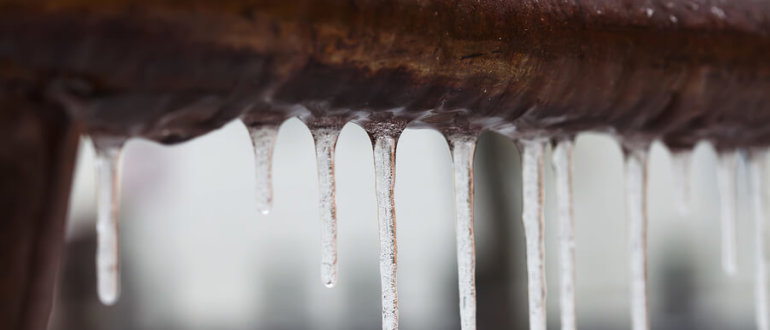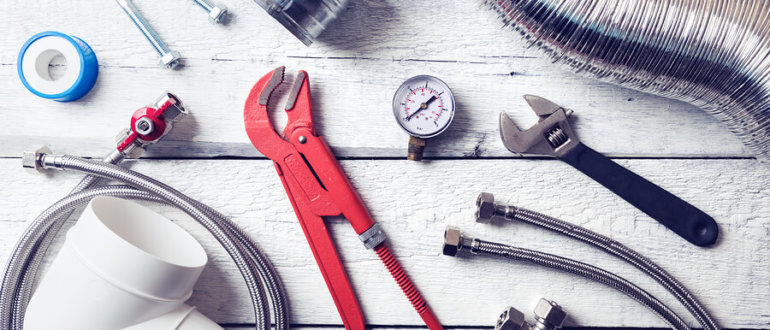Benefits and Downsides Of Underfloor Heating
Over the course of the last few years, hot air systems and underfloor heating have slowly begun to replace radiators and fireplaces. This is largely due to the decrease in utility bills it brings. However, as with everything else, there are benefits and downsides that come with the installation of underfloor heating. Benefits and downsides which we are going to explore in the article below, so read on if you are curious.
The Two Basic Types Of Underfloor Heating
The market currently provides us with two main forms of underfloor heating; one making use of warm water pumped through pipes, the other making use of electric coils. While mainly affiliated with high end establishments like hotels and resorts, these systems can also be installed by a Heater Repair Service in Philadelphia PA in regular homes.
Warm water underfloor heating requires the installation of an interconnected series of pipes which starts at your home’s boiler and webs along below the floorboards of each room you wish to heat this way. While this form of underfloor heating requires lower temperatures than the other, electric, system, it is also costlier to install due to the more elaborate process of the installation itself. Additionally, the floors of the rooms may need to be slightly raised due to the thickness of the pipes.
The other option would be electric underfloor heating, which requires the installation of a web of wire coils below the floorboards of each room you wish to heat this way. You may also be able to opt for heat mats in certain rooms, though uncommonly shaped rooms will require individual wires if you wish to cover the entirety of the room. Additionally, you will also need insulation below the wires. While electric underfloor heating is cheaper to install, it should be noted that it cannot be installed under carpeted floors.
The Benefits Of Underfloor Heating
A lot of people choose underfloor heating to rid themselves of the constraints set by radiators which require to be free of furniture to heat the room. Additionally, radiators will also spread heat unevenly due to their location, and require more electricity to function in lower temperatures. In contrast, underfloor heating is more efficient in both operation and operating costs.
The Downsides Of Underfloor Heating
The lack of underfloor heating in regular homes can be traced back to three main reasons: installation costs, incompatibility with older buildings, and slower heat up time. You can always call on reliable HVAC contractors that have ample experience and expertise in handling such cases. If the underfloor heating system is old, they can remove and install a new one with ease.
A Guide To Charging Heat Pumps During The Cold Season
Refrigerant is a substance (or mixture) that is used to move heat back and forth between the in- and outdoors. However, since refrigerant is transferred through pipes, these lines may be damaged, which will lead to leaks, and thus a loss of refrigerant. As a result, the heat pump requires a recharge in order to restore the desired performance level.
The Complexity Of Charging Your Heat Pump During Winter
If you wish to, or need to, charge your heat pump in the depths of winter (or generally low temperatures), you will need to make use of what is called the “superheat method”.
This method can only be performed by HVAC Repair technicians in Philadelphia who have undergone the required training. “Superheat” is a term which is used when talking about the differences in temperature between refrigerant vapor in its actual state and refrigerant vapor’s temperature during saturation.
If you wish to keep your home warm and cozy, your auxiliary heating system needs to be up and running during the repair process of your heat pump. This is because the heat pump needs to be offline while the necessary repairs are made.
The charging process of a heat pump is significantly more difficult during the cold season due to the latent heat load being so minuscule around the evaporator.
Additionally, and as a result of this, the refrigerant charge of your heat pump cannot be perfect, but it will still be more than enough to restore efficiency to your system.
Charging Process In Low Temperatures
- In order to keep the air inside the system from escaping, the condenser will be covered by a sheet of plastic.
- Using the 4-way reversing valve, the heat pump’s mode is switched to cooling. To achieve this, its low voltage wire will need to be removed. This is because the thermostat will still be asking for heat which it will now be able to obtain through the auxiliary heating system. Once this set up is complete, your home will remain heated, even while the heat pump is down.
- The refrigerant vapor in the refrigerant lines needs to be retrieved by bleeding air from the lines.
- In order to capture this refrigerant, a refrigerant cylinder will be fastened to the gauge lines and switched upside down. Once this set up is established, the manifold valve can be opened and refrigerant liquid can be retrieved.
It is important that you discuss the details with a reliable and licensed contractor that has years of experience in handling varied sizes of HVAC systems. Usually, such services offer standard maintenance plans on a regular basis.
Winter and 6 of the Most Common Heating Problems
Winter is coming…and it has nothing to do with Jon Snow or a Game of Thrones episode! In fact, winter is officially here. It has a way of sneaking up on you, particularly if you are unprepared for it.
When cold weather sets in, you want to be able to rely on your furnace to keep your home and family warm. There are many reasons why your heating system may need repair. Mechanical household systems will break down periodically like any other and some are just a matter of age and daily wear and tear on the system. But there are some very common things that tend to break down with heating systems, some of which don’t need to happen with proper periodic system maintenance.
Lack of Maintenance
Your Philadelphia HVAC system is a huge investment and should be kept in proper working order, just like you keep your car maintained. Unfortunately, many homeowners neglect this maintenance and end up with unexpected breakdowns in the middle of winter. Don’t let this be you!
Clogged Air Filters
The simplest and most important thing you can do as a homeowner is changing your air filter. A clogged air filter will cut down on your system’s ability to do its job and can put unnecessary strain on the system leading to costly breakdowns. Manufacturers suggest that you change your air filters every three months but during the height of winter usage, you may want to do this more often.
Air Flow Problems
Other airflow problems can make your system work inefficiently and cause an eventual breakdown. Damaged ducts and large leaks can lead to a reduction in airflow that can cause wear and tear on the system.
Mechanical Breakdowns
There are hundreds of mechanical parts that are essential to the operation of your heating system. And like any other mechanism, these parts can wear and break down. Wear and tear on a mechanical system can cause problems with performance and cause inconvenient breakdowns. Fortunately, components can be easily replaced as part of a repair service call.
Ignition Control and Pilot Problems
Ignition problems can cause a system to malfunction and require a Philadelphia PA furnace repair call.
Thermostat Problems
A thermostat that is malfunctioning can create comfort issues and can result in no heat getting to your home. This can be quickly diagnosed and repaired by your Philadelphia HVAC repair specialist.
The Best Way to Avert Furnace Breakdowns
The best way a homeowner can keep Philadelphia furnace repairs to a minimum is to have the system inspected and maintained annually before winter sets it. Scheduling an annual maintenance visit can save money and frustration and reduce costly breakdowns when you need your heating system the most.
At Affordable Fixes LLC, our Philadelphia HVAC repair technicians will conduct a complete inspection and cleaning of your heating and cooling system to ensure that it is working efficiently to the manufacturer’s specifications. Don’t get caught with a furnace breakdown in the middle of winter! Call us today to schedule your inspection before a costly breakdown happens to your system.
9 Simple Ways to Save on Your Heating Bills This Winter
You’ve no doubt noticed that winter has come in full force in Philadelphia. And that always means those high heating costs. So how can you reduce those heating bills without breaking the bank? Here are some tips from your Philadelphia HVAC experts at Affordable Fixes LLC.
Lower the Thermostat Setting
This may be a “duh” answer, but most people don’t appreciate how much they can save with just a small thermostat adjustment. In fact, for each degree you lower your setting over a 24-hour period, you can save up to 3 percent during that time period. Consider especially lowering your setting while you are asleep.
Use Your Ceiling Fan
You heard right, use those fans on a low setting in order to circulate the air that gets trapped at the ceiling. Hot air rises. Getting it to circulate brings it down where it is needed and allows it to feel warmer.
Keep Vents Clear
Make sure your vents or radiators are free from obstructions and not blocked by furniture of floor coverings. You want warm air to be able to circulate freely around the room. You will also want to keep your vents and radiators clean and dust free. Not only does dust and dirt clog circulation but it can be a big allergen in the home.
Seal Your Windows
Your home can lose 10 to 25 percent of its heat due to windows. Make sure to seal around windows and doors and any leaks around your home. Open shades on the south side of the home facing any sun during the daylight hours to allow the natural warmth into your home. Make sure windows are covered especially at night when the temperatures dip. Other common places for air leaks are where wires and cables come into the home and around electrical outlets.
Add Insulation
Having adequate insulation is important to keep warmed air inside and cold air outside and can also be a tax-deductible home improvement. Don’t forget to insulate the basement as well.
Close the Flue
Make sure to close your chimney flue when your fireplace isn’t in use, otherwise, you are allowing warm air to escape.
Change Your Air Filters
In order for your furnace to work efficiently, it needs good circulation. A clogged filter is a sure-fire way to reduce the efficiency of your system. This should be done periodically for both furnace and air conditioning systems.
Invest in a Programmable or Smart Thermostat
Thermostats that can adjust your temperature at certain times, even when you aren’t home, can offer substantial savings on your energy bills.
Make Sure to Get Your System Maintained
Making sure your HVAC system is working properly should be something you do each year. Call the Philadelphia HVAC repair pros at Affordable Fixes LLC to see how having an annual maintenance program can ensure that your heating and cooling system is working properly when you need it most.
Can a Smart Thermostat Really Save You Money This Winter?
Heating and cooling your home accounts for approximately half of your energy costs. This means that the more efficiently you do this, the lower your energy costs will be. Enter the new generation of temperature control devices: the smart thermostat. But besides its gadget-worthiness, is a smart thermostat really worth it?
What They Do
A smart thermostat will allow you to change the thermostat settings in your home from an app on your smartphone, computer, or other voice-controlled device. This is a major convenience, especially if your schedule changes frequently and you would like to adjust temperature settings in your home when no one is there. If you’re feeling super lazy, you can even turn on the heat without leaving the sofa.
Another benefit of having a smart thermostat is that not only can you view your usage, but depending on your system, it may even eventually learn your habits and adjust your temperatures accordingly.
But Will it Save You Money?
Ask a Philadelphia HVAC repair technician and the answer you will get is YES. Smart thermostats can save from $131 to $145 a year, according to the Nest Thermostat. In fact, the Nest is so smart, it will encourage a homeowner to make smart choices with handy leaf badges and monthly reports.
Other Nifty Features
Most smart thermostats have features that help make your life easier. Some useful features include HVAC maintenance reminders and dirty filter detection capabilities. The ability to monitor usage can make you more aware of your family’s energy consumption and make you think twice about your family’s energy usage.
Some Important Considerations
When considering the pros and cons of a smart thermostat, there are a few things you need to weigh. Sometimes, a home with air conditioning and a furnace can require a more sophisticated thermostat and professional setup. If you are only planning on living where you are for a short period of time, the investment of a smart thermostat may not be worth it. As is the case with all thermostats, you will want to consider the placement of the unit since it will register the air temperature in that area and not necessarily in other parts of the home. So, placing it near a warm fire burning device or near the kitchen oven can affect its overall performance.
What is the Biggest Downside?
For most people, a smart thermostat has one important downside and that is the cost. While a regular manual thermostat will cost anywhere between $20 and $60, a smart thermostat can cost anywhere between $200 and $300. Some homeowners think that the cost savings would immediately justify the purchase whereas others may not. It is up to the individual.
Call an Expert
If you have questions about smart thermostat technology or are considering having a smart thermostat installed, call our Philadelphia HVAC experts at Affordable Fixes LLC.
Important Steps to Winterizing Your Plumbing
Tis the season to be jolly. But we doubt that jolly will be one of those adjectives that will describe you if you experience a flood or leak due to frozen pipes! Don’t wait until it happens to you. Be proactive and winterize your plumbing so you can continue being jolly for the rest of the season.
Why is Winterizing Important?
Proactively winterizing your plumbing is a critical way to avoid frozen pipes in the winter. When pipes freeze, they can burst and cause incredible damage to your home. Winterizing ensures that pipes, drain lines, fixtures, and faucets are protected against winter freezing.
The High Cost of Water Damage
One of the costliest damages that can happen to your home is the cost to repair a burst pipe and the damage it causes. According to State Farm Insurance, the average homeowner’s insurance claim for frozen pipes averages around $15,000 but can run far more in cleanup costs. If a pipe burst is easily accessible, a small emergency repair to a pipe can still cost several hundreds of dollars for a Philadelphia plumber. Conversely, the cost of averting a frozen pipe emergency is relatively negligible.
Keep Your Heating System Maintained
In the dead of winter, the last thing you want is for your furnace to break down. Call a professional Philadelphia HVAC repair company to ensure that your system is ready for winter.
Inside Winterizing
You should first know where your emergency shutoff valve is and know how to operate it. In the event of any burst, shutting off the main water source is your first line of defense and crucial to avoid costly water damage.
Pipes and faucets that are located in your unheated garage, in the basement or crawlspace of your home or any other unheated area should be insulated. This can be done with special insulation sleeves or special heat tape. All exposed pipes should be insulated, even those in hard to reach places. Don’t leave any gaps in the insulation. If you are not comfortable with doing this yourself, you should schedule the services of a Philadelphia plumber.
Another way to ensure that pipes don’t freeze in particularly harsh winter weather is to open kitchen and bathroom cabinet and pantry doors to allow warmer air access to areas that may be less insulated and harbor plumbing pipes. If you are leaving your home vacant for any period of time, make sure to leave the interior heat on and set it to about 60 degrees.
Outside Winterizing
Inspect the exterior of your home and seal any visible cracks with caulk or spray foam insulation. Make sure to disconnect any hoses and turn off water to outside outlets. Close any foundation or exterior vents.
Call an Expert
If you need help winterizing your home, call a professional. The Philadelphia plumbers at Affordable Fixes LLC will help ensure that your home will be safe from bursting pipes this winter and avoid costly water and flood damages in your home. Call us today for peace of mind.
Some Simple Fixes When Your Toilet Runneth Over
The holidays are drawing near and for many families, that means lots of visiting family — and clogged toilets. Yes, they can be embarrassing, which is why you may not find out about a clog until your toilet runneth over. Not fun.
The causes can be many. From a simple flushing of too much paper to larger clogs down inside the plumbing lines, here are some of the most common causes of a toilet clog and what you may be able to do to troubleshoot them.
Water Saving Toilets
If you have an earlier incarnation of a low-flow toilet, it may not have the power of today’s versions. These earlier toilets did save water but they often didn’t have enough flushing power to push contents through. In these cases, it is a case of upgrading to a more powerful unit alleviating a constant problem with clogs.
Flushing Anything But Toilet Paper
You heard us right. Toilet paper is made to break down in the toilet. But other things as simple as tissues, cotton balls, facial cleansing wipes or even dental floss are simply not made to be flushed. When these items get caught in the drain of a toilet, they will not break down and can create a clog. Most often, plunging will push a simple clog down but there are times when you may need the professional help of a Philadelphia plumber.
Flapper Isn’t Flapping
Inside the tank of your toilet, there is a rubber gasket at the bottom called a flapper. Its function is to open when you flush, letting water in the tank move down into the bowl. If the flapper is malfunctioning or old, it may not be opening completely. For most homeowners, this is a simple DIY fix with a chain adjustment or a new flapper from your local home improvement store.
A Problem in the Trap
Your drain pipes have a trap which is a bend at the pipe that prevents odors from coming up into the home. This bend can also result in clogs. If a plunge doesn’t move the clog through, you will want to consult a plumber in Philadelphia for an expert repair.
Your Vent
You will have a plumbing vent on your roof allowing fresh air into your system. If this vent becomes clogged with outside debris such as leaves or dirt, it can result in stopped up drainage and even malfunctioning toilets. Cleaning the drainage vent is best left to a professional.
The Sewer Line
Unfortunately, there are times when the issue can be a clog, a break, or tree roots infringing on the main sewer line. Because it involves digging at the sewer lines often on private property, this requires the skill of a professional plumber. You will want to request a professional who uses a camera in order to inspect the lines prior to digging.
When you need the skill of a professional plumber in Philadelphia, call the experts at Affordable Fixes LLC. For over 30 years, we have been the professionals more residents have trusted for their plumbing and HVAC needs.
Why You Should Consider a Central Humidifier this Winter
You are glad for the cooler air after a long, hot, humid summer. With the cold temperatures comes dryer air. So why would you consider bringing more humidity into your home in the winter?
Next to the reading on the thermometer, humidity is the next biggest factor in the comfort level of your home. Philadelphia HVAC contractors suggest that central humidifiers are a perfect way of controlling important humidity levels inside your home. These can help increase comfort levels but also have other important benefits.
Although ultra humid days can sap your energy in the summer, what you are going for is a balanced environment. During the winter, the cold freezes moisture out of the air and lowers the humidity of a living space substantially. Your furnace further contributes to lowering the humidity level inside your home. Having a central humidifier installed by a Philadelphia HVAC contractor has many benefits for homeowners during the winter months.
Comfort
A central humidifier can increase the moisture level inside the home for a more balanced comfort level. Although high humidity in the summer makes the air feel much hotter than it is, the opposite is true for cold, dry air. Dryer air makes the air feel colder and has the effect of soaking moisture from the body. Having the benefit of higher moisture levels inside your home makes your home more comfortable as well as alleviating cold weather conditions such as chapped and dry lips and skin, dry eyes, and chronic nosebleeds.
Reduced Deterioration of Wood Items or Furnishings
Dry air can deteriorate wood interior finishes, furnishings, or any possessions you may own such as musical instruments. Having a central humidifier can help protect these items from splitting and warping.
Energy Savings
Having a more humid environment has the effect of making you feel warmer. Consequently, you may not feel compelled to turn the thermostat up as often. Your humidified air will help save you money on your electric bills. According to the EPA, a central humidifier has the ability of saving you up to 4 percent on your energy bills. And controlling humidity may help your home qualify for the National Association of Home Builders’ Green-Built Certification Program.
A Healthier Environment
Dry air can not only cause skin irritations and dry up sinuses, but it also can make it easier to pass viruses and germs between people. Respiratory illnesses, colds, and flus spread more quickly in drier environments.
Central humidifiers are installed directly into your current heating and cooling system and work by bringing water vapor through the duct system with your heated air. There are even systems that are designed for homes that have radiant or baseboard heating. You can adjust your humidity levels the same way you control your thermostat in order to get a balanced amount of humidity in your home.
A central humidifier is a simple addition to most HVAC systems. Call the Philadelphia HVAC contractors at Affordable Fixes LLC to discuss the benefits of having a central humidifier installed in your home.
What to Do When Your Furnace Trips a Breaker
It’s already November and we are anticipating the upcoming holidays. Cooler air is moving in and you turn your furnace on for the first time. Oops! Your breaker trips. What does that mean and what can you do about it?
Unfortunately, when your HVAC system is tripping breakers, it may be more than just a minor inconvenience. The circuit breakers in your home are built with a safety precaution system. Circuit breakers are designed to trip when they detect a fault in the system. These have the potential to create hazards and cause fires as well as damage equipment. If your furnace is tripping a breaker, there may be a serious safety risk that needs to be addressed.
Reset the breaker. If this works and you have no further issues, the problem may have been something like a temporary power surge or spike in the grid. Keep an eye on it. But if your furnace continues to trip the breaker, the source needs to be located and repaired.
The most common problems with a furnace that continues to trip the breaker are:
- An overloaded furnace
- An overloaded shared circuit
- A short circuit or ground fault inside the furnace
- A problem with the circuit breaker itself
An Overloaded Furnace
An overloaded furnace can be caused by numerous things. These can be
- Dirty air filters
- Blocked air vents
- Restricted ductwork
- Malfunctioning parts inside the furnace
Some of these things can be fixed by the homeowner but some require the skill of a Philadelphia furnace repair professional.
An Overloaded Shared Circuit
Electricity hogs such as your HVAC system should be on their own circuits. But many older homes were not constructed this way and your furnace may share a circuit with other appliances, lights or outlets. This can overload these circuits. Have a Philadelphia HVAC contractor either move the other shared items off that circuit or move the furnace to its own circuit.
A Short Circuit or Ground Fault Inside the Furnace
Short circuits can happen when a hot wire comes into contact with a neutral one. A ground fault can occur when a hot wire touches a ground wire or another grounded part in the furnace. Both of these create a surge of electric current that the furnace is pulling. This type of issue should be left to a Philadelphia HVAC repair professional.
Circuit Breaker Issues
Sometimes the problem isn’t with the furnace but with the breaker or panel itself. This requires the expertise of an electrician.
Breakers that continue to trip create a fire risk and potential damage to your electrical system. When you are experiencing tripped breakers when you turn on your furnace, you want an experienced professional.
The repair experts at Affordable Fixes LLC are here to help. For over 30 years, we have been the Philadelphia HVAC professionals more residents have trusted for their plumbing and HVAC needs. Call us today when your furnace needs the skill of a professional.
Make Sure Your Furnace is Ready for Winter
We are just winding down from summer but now is the perfect time to start considering your furnace. There are some common issues that affect furnaces, so now is a good time to troubleshoot where necessary and get a Philadelphia HVAC repair technician in for repairs as needed.
If you find that your furnace isn’t producing heat at all, you may have issues with the thermostat, your power, or the pilot light. If the furnace isn’t heating adequately, you may have issues with a clogged filter or your furnace may be too small for the size of space you are trying to heat. Now is the time to figure these things out before the coldest winter weather moves in.
Dirty Filters
Dirty filters are the most common reason your furnace may malfunction. Dirty filters can become clogged and reduce the airflow through the system. This will make your furnace work harder than it needs to. If airflow is diminished substantially, it can do damage to the system itself. You may notice poorer air flow or higher heating bills when this happens. Filters should be changed monthly in order to keep air flowing freely through the system.
Wear and Tear
Normal, everyday wear and tear can also reduce airflow and heat control related issues. These can cause overheating of the unit.
Electric Ignition or Pilot Control Issues
Faulty ignitions or pilots can make it impossible to keep a home or business heated reliably. Drafts, clogs, or thermocouple issues can cause a pilot not to light. It may be necessary to close windows and doors in the room in order to reduce drafts.
A Malfunctioning Thermostat
A faulty thermostat, as well as a poorly calibrated thermostat, can create comfort issues in your home. If your furnace is not producing adequate warm air, check the battery level or replace the batteries in the thermostat. You can also call your Philadelphia furnace repair technician out to calibrate your thermostat for better temperature control.
Cycling
Frequent cycling, or turning on and off, may indicate any number of things. The easiest thing to troubleshoot would be to make sure your filters are not clogged. It also may be an issue with improper airflow or a faulty thermostat.
Blower Continues to Run
When a blower fan won’t turn off or your furnace cycles, the first place to check is the thermostat. Make sure that the thermostat is set properly and the fan setting is on “Auto”. If the blower continues to run, it may indicate that there is a problem with the limit switch. In this case, you will want the skill of a Philadelphia HVAC repair technician.
The best course of action is to make sure to get annual HVAC maintenance. This will ensure that your system is clean and inspected and will run properly when necessary. The perfect time to get your system maintained is before you need it so issues can be repaired before the busy winter season.
An annual maintenance tune-up will examine all the parts of your heating system and get any issues corrected before they lead to a breakdown. Call the Philadelphia furnace repair professionals at Affordable Fixes LLC for your annual furnace maintenance so you can remain warm and toasty this coming winter season.
6 Hints for Staying Warm This Winter While Cutting Costs
With Halloween around the corner, here in Philadelphia, we are getting ready for that brisk fall air. And before we know it, winter will be here. Even though you may be getting the last few days use of your barbecue grill, winter is inevitable and so are those high heating costs. So how can you stay warm and still keep your heating bills reasonable? Try these 6 hints!
Fall Cleaning
We’ve all heard about Spring cleaning but Fall cleaning can be equally important when it comes to heating efficiency. Make sure that all vents and returns around your home are free of obstructions and dust. Move any furniture that may be inhibiting airflow. Change your air filters to make sure air has easy access and circulation and is not clogged with dirt.
Turn Down the Thermostat
This may seem like a bit of a no-brainer, however, our first instinct when cold weather hits is to make our inside temperature warmer…and warmer. For a lot of us it is psychological. But even if it is a direct response to your need for warmth, consider this: the Department of Energy says that you can save approximately 10 percent of your energy costs each year by adjusting your thermostat down by 10 to 15 degrees for approximately 8 hours a day. While you are asleep is the perfect time to do this or while everyone is gone during the day at school or work. You won’t compromise your comfort and you will be able to reap some cost savings in the bargain.
How About a Smarter Approach?
Speaking of thermostats, many Philadelphia HVAC contractors are suggesting having a smart thermostat installed to adjust temperatures conveniently from any smartphone. Although programmable thermostats are also convenient, smart thermostats allow you to adjust your temperature from anywhere at any time with a convenient app. This way, you aren’t locked into a schedule that you have preprogrammed.
Don’t Forget the Fan
No, your fan is not just for summer. If you have ceiling fans, you can adjust the blades to turn the opposite direction. This will allow warm air that tends to rise to the ceiling to circulate around the room where it is needed in the colder weather.
Natural Heat
Take advantage of the sun’s natural heat on sunny days. Open up curtains and blinds on those windows facing the sun and take advantage of those natural heating rays. Always remember to close curtains and blinds afterward, however, as they provide added insulation from the cold.
Get a Tune Up
Your HVAC system should be tuned up periodically to make sure it is working at its optimum. During a tune-up, your Philadelphia HVAC repair technician will do a full inspection and cleaning of your system to ensure that it is working cleanly and efficiently for the upcoming season. Call Affordable Fixes today to ask how a thorough HVAC tune-up can help keep your system running smoothly while saving you money this winter.
How to Prevent Your Pipes From Freezing While You Are Away
With holidays upcoming, many of us travel to visit friends and family. But how do you keep your home safe while you are away?
Today, water damage is one of the most common insurance claims and frozen pipes can lead to an incredible amount of water damage in your home. When you are on vacation during the cold winter months, you can come back to some severe damage. Today, an average claim for water damage can exceed $6,000. That is a headache you don’t need. Before you go away for the holidays, here are some ways you can ensure that your pipes won’t freeze while you are gone.
Check for Leaks
Do a preliminary leak check before you go away. Small leaks can lead to large ones when you least expect it. Look for any small leaks and corroded areas that may need attention. Look for any areas that may appear wet or rusted and call a Philadelphia plumber to check out the area.
Check Appliance Hoses
Your household appliance hoses may not be areas that you consider on a daily basis but this is exactly why you need to make this an area of inspection. Any of these hoses are subject to freezing and could burst. Check for any leaky fittings or loose connections.
Shut Off Your Water Main
The best way to ensure that your home doesn’t experience a flood when you are gone is by completely shutting off the main valve to your home’s water. This may be outside near your water meter or in your basement. You should test this once a year just to make sure the valve is easily operable.
Drain Your Lines
If you have shut off your main valve, you will want to drain each interior line so water is not sitting inside the line. Open the taps inside the home as well as any outdoors and let any remaining water drain out.
Shut Off Individual Lines
If shutting off the main valve is inconvenient or impossible, you can shut off each individual line to each plumbing fixture. Sinks, faucets, and toilets have dedicated shutoff valves. Remember to shut off any water supplies to your washer and refrigerator.
Add Insulation to Your Plumbing Pipes
Insulation sleeves are easy to find at any hardware store or home improvement center. Insulating your plumbing pipes is further precaution against pipes freezing in your home while you are away. For those hard-to-reach areas, you may want to call a Philadelphia plumber for assistance.
Check Your Sump Pump
If there is a leak in your home, the water will flow to the lowest place which will be your basement or crawlspace. May sure that your sump pump is working properly in order to keep water damage to a minimum.
Keep the Heat On
It doesn’t have to be kept as high as you would normally set it, but keeping it set above 50 degrees Fahrenheit is a good way to ensure against pipes freezing while you are gone.
Keep Interior Doors Open
Keep all interior doors open including cabinet doors. This allows the warmer air to freely circulate throughout the home.
Install a Smart Thermostat
With a smart thermostat, if you see that the weather will be particularly frigid, you can set the thermostat accordingly with a touch of your app on your smartphone.
Need a professional plumber in Philadelphia? Call the experts at Affordable Fixes LLC for any of your plumbing needs.
Stay Ahead of Winter Plumbing Emergencies With These 9 Tips
At Affordable Fixes, LLC, we are dedicated to providing every customer with the type of service they deserve. Need an expert for your emergency? Call Us.
Winter Is Coming! 5 Ways to Get Your Furnace Ready
Winter. It comes around far too soon for most of us. But being prepared for those cold months is simple if we take time to do some pre-season maintenance before the weather turns frigid. Philadelphia HVAC repair professionals agree that now is the perfect time to make sure that your furnace is ready so you won’t be caught mid-winter at the worst possible moment with a furnace repair. Taking a few maintenance precautions ensures that your furnace will keep you warm and toasty when you need it most. Here are 5 quick and easy steps to make sure your furnace is ready for that cold winter weather.
Turn the Heat On
Do a preliminary check to make sure your furnace is working properly. Switch your thermostat to the heat setting and set a temperature higher than that of the room. Listen to make sure that the heat clicks on. If you don’t hear the heater engage, you may need fresh batteries in your thermostat. If the heat still doesn’t turn on, call your Philadelphia furnace repair specialist to check your heating system.
Change Your Air Filters
You will want to make this a ritual every few months whenever your HVAC system is running. Cleaning or replacing your air filters is one of the simplest but most fundamental things you can do for your heating and cooling system. If your system includes a humidifier, it is also a good time to change your humidifier filter and set the humidistat.
Cover Your Air Conditioning Condenser
Cover your outside condenser with a loose cover and secure it with bungee cords. You can also purchase a special cover for your condenser. Either way, you want to protect the unit from debris and leaves falling in over the winter. Just make sure you are not trapping moisture inside the covering. This can freeze and cause damage to the condenser.
Check Your Carbon Monoxide Detectors
You should make sure that your carbon monoxide detector is functioning and is able to protect you from any carbon monoxide leaks. This is also a good time to inspect your chimney for any areas of concern as this is one place where carbon monoxide buildup can take place.
Get Your System Checked
Call a Philadelphia HVAC repair professional for a pre-season check-up Getting your heating system checked by a professional takes care of some important maintenance that all HVAC systems should have every year. Your technician will
- Clean the external area and check for debris buildup.
- Inspect for leaks.
- Change any filters
- Clean the burners — furnace burners can become coated with soot and debris and these can reduce the effectiveness and efficiency of the unit.
- Clear any vent lines
Having a professional annual maintenance done is an important way to ensure that your heating system will be working properly and efficiently when the cold weather arrives. Call our Philadelphia PA furnace repair professionals to ensure that you won’t suffer an inconvenient breakdown during those cold winter months.
Fall is The Perfect Time For Furnace Maintenance
We know you’d rather not think about it, but winter is right around the corner. And while the weather is still warm, it is the perfect time to maintain your heating system so you aren’t potentially caught dealing with a malfunctioning furnace in the dead of winter.
One of the best ways to ensure that your heating system is working at its peak is to schedule an annual furnace check-up. Like any mechanical system from your car to your HVAC system, the wear and tear of daily usage can create potential problems and malfunctions. Just like you take your car in for preventive maintenance, you should consider the same for your heating and cooling systems.
Before You Call a Professional
Before you call your Philadelphia HVAC contractor for an official tune-up, there are some things you can do as a homeowner. DIY troubleshooting can be half the battle.
Check Your Air Filter
In order to ensure that your furnace is efficiently circulating, the easiest fix is your air filter. Such a small thing, but one of the most important aspects of your heating system is that small filter. A clogged air filter will result in restricted air flow, decreased efficiency, and higher energy bills. Take your filter out and hold it to the light. If you don’t see any light coming through the filter, it needs immediate replacement.
Check Your Thermostat
Another easy homeowner troubleshooting area is the thermostat. Set it to “heat” and make sure the temperature setting is above the current temperature inside your home. Feel the air to make sure that it eventually begins to come out warm. If your thermostat is not operating, it may be time for a simple battery change.
Open Your Household Vents
No, it doesn’t save money by closing off vents in rooms that are seldom used. That is a fallacy. In fact, closing vents can result in higher energy costs and can potentially cause damage by decreasing needed circulation. Closing off vents can increase pressure in the furnace leading to inefficiency and breakdowns.
What a Furnace Maintenance Visit Includes
When you are ready for your furnace tune-up, your Philadelphia HVAC repair technician will conduct a full inspection of your system. This will include:
- A visual inspection to check all working parts of the system
- Lubrication to ensure that friction is reduced between operating parts.
- Pilot light and gas pressure evaluation in order to make sure they are working to specification
- Filter replacement
- Written assessment. A quality professional will always offer an analysis and recommendations in order for you to understand the current condition of your systems.
Your furnace is a big investment. Regular maintenance ensures that it is working correctly and efficiently and will prolong its lifespan. Before winter rolls around, call the Philadelphia HVAC repair professionals at Affordable Fixes LLC to ensure that your furnace is ready for that cold weather.
Time to Check That Furnace Before You Are Left Out in the Cold
Sad but true, summer is over. The kids are back in school (a good thing) but that warm weather is on its way out (a not so good thing). Summer seems to get shorter each year. Before you know it, we will be bundling up and heading out for football games, roasting a turkey, getting ready for the holidays…and running that furnace.
Now may be a great time to brush up on furnace trivia courtesy of your local Philadelphia HVAC professional. No, furnace trivia is not the newest board game but things to be watchful for to suggest that your furnace is about to break down. We tend to forget about our dear furnaces throughout the summer but it’s best to brush up early.
Your heating system will often offer warning signs before a complete and total breakdown, fortunately for us. There are some common symptoms that we can watch for in order to head off inconvenient breakdowns in the middle of cold weather season.
Banging Noise
Your first indication of a furnace issue can show itself when you first turn the system on. If you hear a loud banging when your furnace starts, it could indicate a few things. One may be that the burner may be malfunctioning. Because gas builds up until the burner, ignites it, which can result in a loud bang. Think of it as a small explosion. Do you want a small explosion happening in your home? We didn’t think so.
Metal air ducts can also expand and contract as cold or warm air passes through them. This can also result in booming noises. The extenuating culprit may be obstructions at the vents, air filter, or simply ducts that aren’t adequate for your system.
More Noises
Are you hearing a high-pitched whining noise? This could be indicative of a blower belt problem or shaft bearing needed lubrication. A metallic scraping noise? A malfunctioning blower wheel or broken motor mount. Either sound should mean a quick call to your Philadelphia furnace repair technician.
Cold Air When There Should be Warm Air
There may be several reasons that your furnace is generating cold air. The easiest thing to consider is your thermostat. Your thermostat should be set to “auto”, not “on”. This will ensure that only heated air is being generated when necessary instead of continuous, and possibly cold air being generated instead. Another issue may be with a clogged air filter. Your air filter may be restricting airflow and can potentially overheat your system. The system will stop heating air as a precaution.
Get a Head Start
If you are smart, you will get a head start on checking on your heating system, so you will be warm this winter while others are calling their Philadelphia HVAC repair companies for repairs. Call Affordable Fixes LLC to get a head start on your heating system before cold weather moves in.
How to Prepare Your Air Conditioning For Winter
Although it’s the end of summer, there are some last minute considerations before you tuck your cooling systems away for the year. Home maintenance never ends. The same goes for your heating and cooling systems. In order for you to ensure that your air conditioning system will work without problems come next summer, it’s important to prepare it for a long winter slumber.
The outdoor component of your AC system is subject to winter weather in the way of snow, ice, and oxidation. It is also subject to yard debris. A quick winterization can prevent damage and rust and ensure that your air conditioning system is kept from harmful weather and will operate smoothly and efficiently next summer.
Turn Off the Power
Your exterior power circuit for your AC system is located on the side of your home. Lift the cover and flip the switch to the “off” position, then close the lid. This is important to ensure that there is no risk of electrocution while you are maintaining your unit. It also ensures that your air conditioner doesn’t accidentally engage during an unseasonably warm day, possibly resulting in a nighttime freeze and subsequent damage.
Clean Your Unit
Using a broom, sweep away any leaves or yard debris that may be on or surrounding your unit. Use a hose to wash away any dirt or other debris. Allow the unit to dry. Making sure your unit is clean ensures that it won’t get clogged during the winter resulting in a breakdown when you turn it back on next summer. Inspect it for any cracks or rust that may become potential problems. Finding problems now cuts the risk for a breakdown in the middle of the summer. If you see any problems, call your Philadelphia AC repair technician.
Cover Your Unit
There are covers specifically made for your outdoor AC unit. You may also use any type of waterproof or vinyl covering in order to protect it during the upcoming winter. Make sure the covering is secured so it doesn’t blow away in the wind.
Provide Extra Insulation
The exposed pipes and wiring around your unit should be insulated, particularly those that go into the home. This insulation keeps pipes, fluid, and wires from freezing and cracking.
Check Periodically
Throughout the winter months, you will want to check your AC unit weekly in order to clear away any accumulated debris and to remove any water or ice that may have accumulated on top of the unit. This accumulated weight can be potentially damaging.
This seasonal maintenance will extend the life of your AC system, fend off potential problems, and enable you to check for any issues before the next summer season begins. If you do find any irregularities, make sure to call the Philadelphia air conditioning repair professionals at Affordable Fixes LLC to address any issues before they turn into costly malfunctions.
Frozen Pipes Are No Joke
It’s difficult to think about winter just yet as the last remains of summer are so close, but the reality is that winter is inevitable. And with it comes some inherent problems when it comes to our household plumbing.
Unless you have experienced it or know someone who has, you may not appreciate that frozen pipes are not only inconvenient but can be extremely damaging to your home and your belongings. One of the most important things to consider when doing regular home maintenance is considering how your plumbing will stand up to winter weather.
Areas That Are More Vulnerable
In many cases, pipes are vulnerable to freezing when the homeowner is away and temperatures inside dip to below freezing. But this is not always the case. Pipes can freeze in certain areas of the home even if you are home and living comfortably inside. When it comes to frozen pipes, there are areas of the home that are most vulnerable.
Exterior walls — any pipes located along the exterior wall of a home will experience lower temperatures. If these pipes are not adequately insulated, they will have no protection against those winter temperatures and can be vulnerable to freezing.
Attics and basements — pipes that are located in attics and basements may be more vulnerable to freezing. Out of sight, out of mind, they say. But these areas of your home may be more susceptible to cold temperatures and require that added insulation.
Early Signs
One of the first signs that your pipes may be frozen is the lack of water coming through them. If water is not coming through your household faucets, it’s a sure sign that there may be a frozen obstruction. If you see frost on any of your pipes or you are experiencing strange smells coming from your drains or faucets, this can be another indication.
What to Do
If you suspect that a pipe may be frozen, it’s important to act immediately. If you know the location that is frozen, you can work to quickly thaw the area or call your Philadelphia plumber for an emergency call.
If you choose to thaw the pipe yourself, you should open both hot and cold handles of the faucet that the pipe feeds into. If the pipe is easily accessible, you can apply heat until you see that water is moving through the faucet. This can be done with a hair dryer, a heat lamp or space heater, hot towels, or electrical heating tape.
If the pipe isn’t accessible, but you know basically where the frozen area is located, you can place an infrared lamp at the location and turn up the heat in the home.
Prevention Techniques
To ensure that you aren’t a victim of a frozen pipe this winter, here are some recommendations from the American Red Cross:
Keep garage doors closed if there are water supply pipes inside.
Open cabinet doors to permit warm air closer circulation to pipes in the kitchen and bathrooms.
If the weather is excessively cold, let water slowly drip from any faucet that may be fed by outside pipes.
Keep the thermostat consistent both day and night. Lower nighttime temperatures can equal costly repairs.
If you leave your home for an extended period, keep the heat on in your home with the thermostat set no lower than 55°F.
Call a Professional
In the case where you have not been able to head off a plumbing emergency due to frozen pipes, call the emergency Philadelphia plumbers at Affordable Fixes LLC.
Summer Routine Checks for Your HVAC and Plumbing
Affordable Fixes, LLC is one of the most trustworthy and dependable air conditioning, heating, and plumbing contractors in the greater Philadelphia area.
How to Keep Your Indoor Air Clean and Pollutant-Free
If you’re like most homeowners, unless you have a family member who suffers from respiratory issues, you probably give little thought to your indoor air quality. Many of us feel strongly about the environment but give very little thought to the indoor environment we live in daily.
Indoor Pollution
According to the people at the Consumer Product Safety Commission, there is a growing body of evidence that air inside our home and buildings are more polluted than the outdoor air. This is quite concerning for most of us, especially since we spend nearly 90 percent of our time indoors.
Bring Nature Inside
One way you can clean your indoor air is by bringing houseplants in. As they rely on carbon dioxide to live and expel oxygen, it is a perfect indoor filtering option.
Open Windows
During good weather, keep windows open as much as possible. Newer homes, in particular, get very little outdoor air circulation and tend to re-circulate air over and over. Keeping floors clean will also lessen particles that may end up being circulated in your indoor space.
Change Your Air Filter
By changing your air filters regularly, you reduce the particles that get caught and often clog your system. A clogged filter can actually do more harm than good by re-circulating allergens and particles back into your home.
The typical HVAC system will circulate over 1,000 cubic feet of air each minute through its filter. Philadelphia HVAC repair professionals suggest you change your filter every 2 to 6 months depending on the number of occupants and whether you have pets.
Cut Down on Mold and Mildew
Humidity trapped inside your home can become a breeding ground for bacteria, mold, and mildew. The EPA suggests that indoor humidity levels should be between 30 and 60 percent. By utilizing dehumidifiers and exhaust fans, you can manage the humidity levels inside your home to a healthy level and cut down on the possibility of mold taking up residence there.
Install a Carbon Monoxide Detector
We hear each year about families who have succumbed to carbon monoxide poisoning, often because of badly maintained or fitted heaters or clogged fireplaces. Because carbon monoxide is odorless and colorless, your best line of defense is an installed carbon monoxide detector inside your home.
Keep Your Air Well Ventilated
Because we tend to re-circulate stale air during certain times of the year, it’s important to balance this with clean, fresh air. Many homeowners are choosing to install heat recovery ventilators in their homes.
These use a dedicated duct in order to remove stale air while circulating the same volume of fresh air indoors. There is a heat exchange core inside the controller that keeps incoming fresh air consistent with the temperature of the indoor air.
Ask your local Philadelphia HVAC contractor how a heat recovery ventilator can help your indoor air quality. The HVAC professionals at Affordable Fixes LLC would be happy to answer any indoor air quality questions you may have. Call us today.

